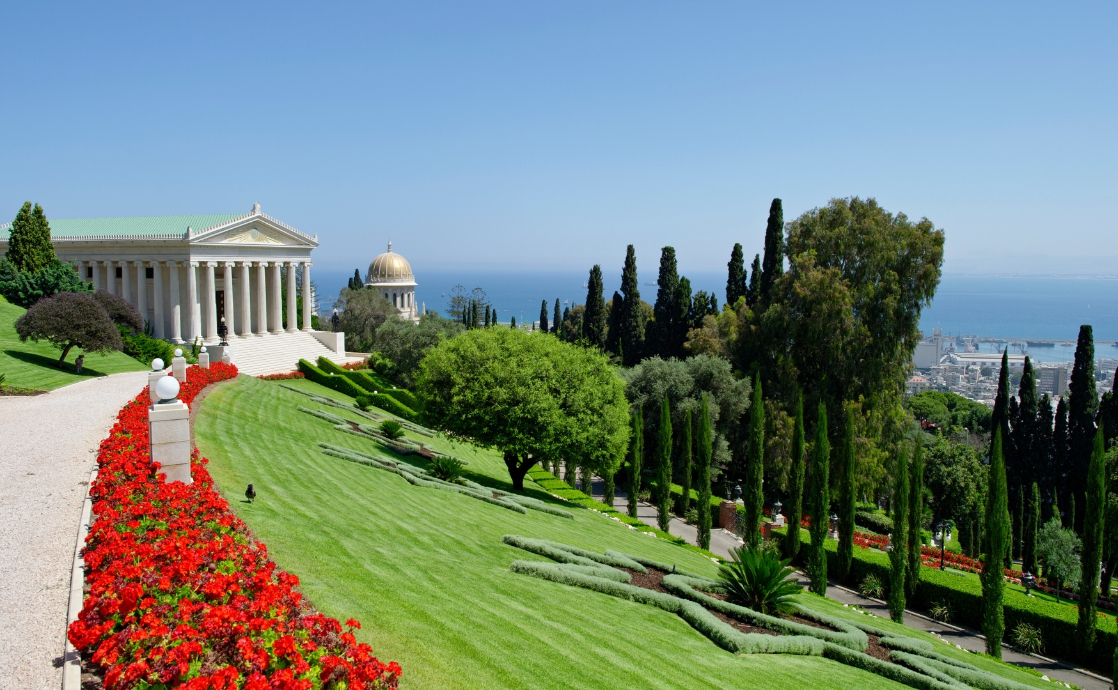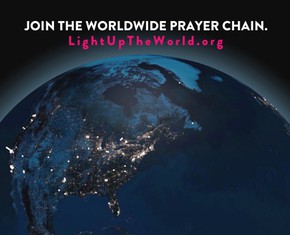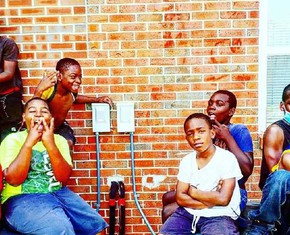The views expressed in our content reflect individual perspectives and do not represent the authoritative views of the Baha'i Faith.
Growing up, I always knew I wanted to serve my Faith by dedicating a year of my life to helping humanity in some way. But when I graduated from high school, I found myself at a crossroads.
The expected path seemed clear: dive straight into higher education, continuing the pursuit of academic success.
RELATED: Accompaniment: Activating the Potential in Others
But something stirred within me, allowing me to pause and reflect. On one hand, I felt the need to pursue my professional goals — the logical next step. On the other, I wanted a chance to dedicate myself to a year of service to humanity, the ultimate goal of every Baha’i, as expressed in this passage from the Baha’i teachings: “It is appropriate and befitting that in this illumined age — the age of the progress of the world of humanity — we should be self-sacrificing and should serve the human race.”
Many high school graduates take a “gap year” — but this was something different. Instead of just traveling or simply reflecting on my future, I felt compelled to get a different kind of education, the kind that only selfless service to others can provide.
It wasn’t an easy decision — and the significance of my choice began to deepen as I reflected on the turbulent history of my Faith.
In the mid-19th century, Baha’u’llah, the prophet and founder of the Baha’i Faith, was exiled from Persia (modern-day Iran) to the Ottoman Empire because of his revolutionary teachings. After enduring several successive exiles and imprisonments, Baha’u’llah was ultimately sent in 1868 to the prison city of Acre, Palestine (now in Israel, and also known as Akka). Acre, part of the Ottoman Empire at the time, was a walled prison city infamous for its harsh, punitive conditions. Baha’u’llah spent the remainder of his life there, passing away in 1892. His resting place, the Shrine of Baha’u’llah in Bahji, near Acre, is considered the holiest site for the world’s Baha’is.
After Baha’u’llah’s passing, his son and successor, Abdu’l-Baha, expanded the Faith’s spiritual legacy in many ways, including overseeing the construction of the Shrine of the Bab on Mount Carmel in Haifa. This shrine, now a central Baha’i holy site, houses the remains of the Bab, the martyred herald and forerunner of Baha’u’llah. Around this sacred area, the spiritual and administrative centers of the Baha’i Faith have grown, including the Seat of the Universal House of Justice, the democratically-elected governing council of the global Baha’i community.
These centers and their beautiful gardens have drawn young Baha’is from around the world, many of whom, like me, volunteer for a year of service and spiritual reflection. In that place, devotion to faith and humanity intertwine.
In making my decision, I pondered the guidance of the Universal House of Justice, which gave me the assurance that both service to the Faith and pursuing education represent significant goals for youth and that the balance between the two varies according to individual circumstances. In a 28 October 1992 letter, the Universal House of Justice clarified:
In some circumstances, however much a youth may wish to respond to a call to Baha’i service of a particular kind, he may not be able to do so because he may be in the midst of important academic training that cannot and should not be postponed, he may be dependent on parents who cannot afford to assist him materially both to take time out to engage in a year of service and to return to his academic pursuits later on, or there may be other obstacles. Then there are circumstances in which a youth may find that by postponing his academic training for a time, he is better able to determine exactly what to do with his life, if during this time he can make some useful contribution to the Faith or to society.
This guidance gave me the confidence and assurance I needed as I grappled with uncertainty, questioning whether pausing my education was the right choice. In the end, my heart was drawn to the values of service the Baha’i World Centre embodies.
So, I took a leap.
I applied to serve even as I began my first year of college. When the acceptance letter came from the Baha’i World Centre, I knew I was meant to follow this path, and I embarked on a journey that would shape my understanding of purpose, commitment, and what it truly means to serve others.
RELATED: I’m Not Wealthy – Can I Still Be a Philanthropist?
I arrived in Israel feeling a mix of emotions — scared and homesick, yet also excited. The experience was more challenging than I anticipated. Everything seemed unfamiliar — the culture, the responsibilities, and the community of volunteers from all corners of the globe. At first, I felt out of place, struggling to adjust to a new routine and way of life. The ideals of service that had initially inspired me now demanded real action, patience, and persistence.
However, as days turned into weeks, something began to shift within me. Slowly but surely, the once daunting environment turned into something profoundly enriching. What initially felt like isolation gradually became an opportunity to build meaningful connections. I found myself surrounded by a group of young volunteers, each one dedicated to service like me, each bringing their own unique qualities and perspectives. These individuals came from all walks of life, representing diverse countries, cultures, languages, and experiences. As we worked side by side, the bonds we formed transcended any differences, creating a sense of unity and shared purpose.
You May Also Like
Comments

















May the Blessed Beauty sustain you in your journey🙏 And, remember that God, too, loves laughter😂 so keep writing🤗🙏